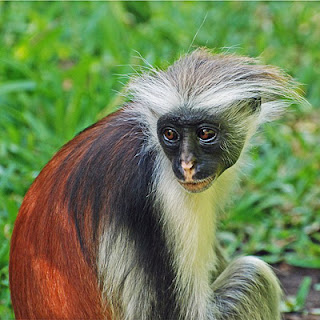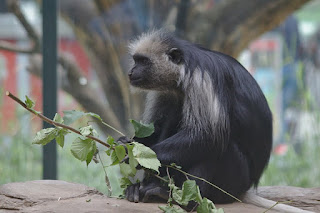 |
| Zanzibar red colobus |
The easternmost species of red colobus falls into this latter category. Named the Zanzibar red colobus (Piliocolobus kirkii) this has historically restricted to the eponymous island. Since 1964, this has been the "zan" part of Tanzania, and lies just over 20 miles off the east coast of the mainland with an area of a little under 1,500 km² (565 square miles). With a human population of around 1,500,000 it is, as one might expect, substantially given over to agriculture and other development. As a result, while they once ranged across the island, they are now primarily found in the less settled eastern half of the island, where there are some inland national parks. In the 1970s, a small population was re-introduced to a patch of land on the west coast north of the main urban areas and others were translocated to Pemba Island to the north, where the species has never existed naturally. While one of the latter groups did survive and breed, their descendants are likely quite inbred and it has been argued that we'd be better off supporting the main population in their original home.
.jpg)
